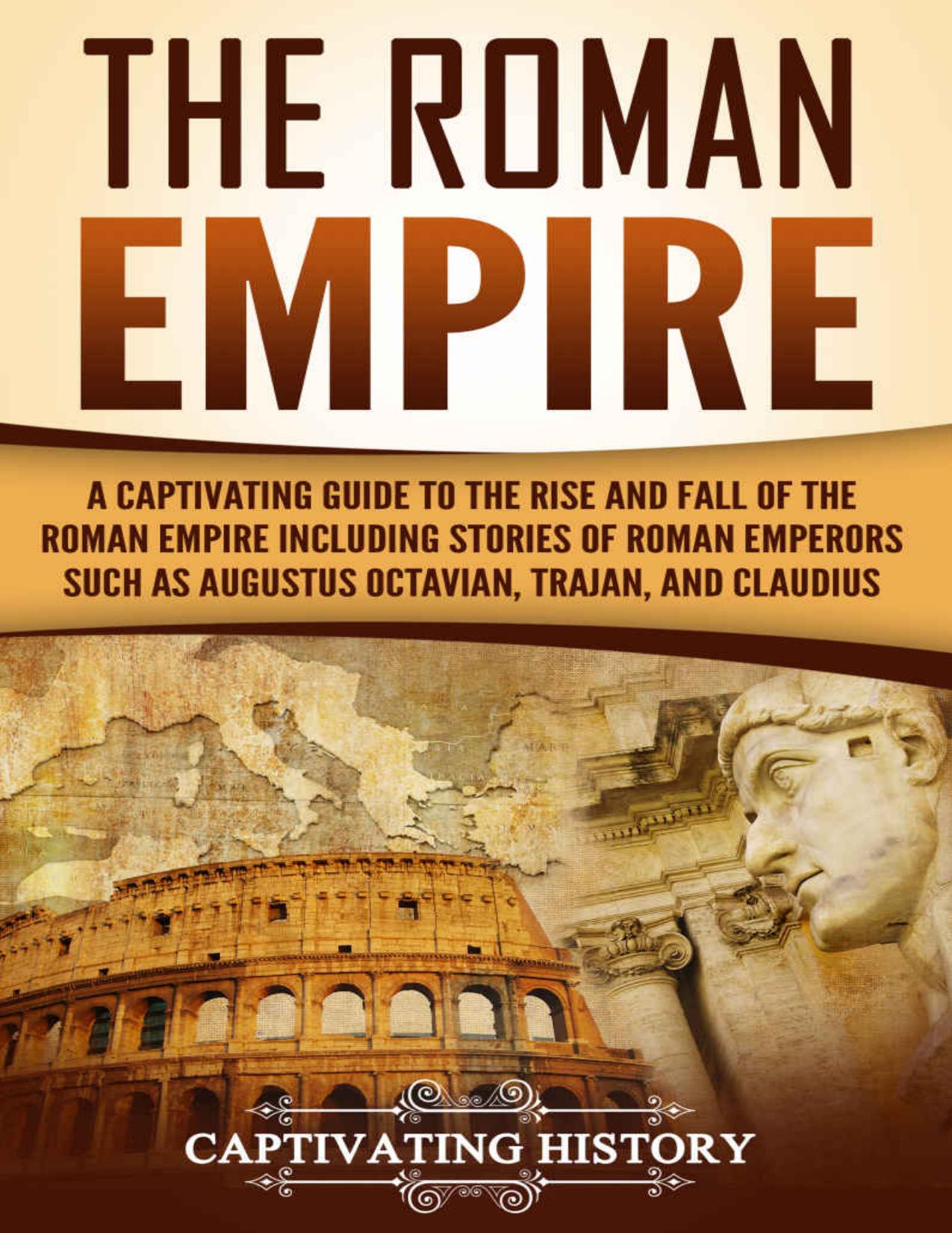The Roman Empire: A Captivating Guide to the Rise and Fall of the Roman Empire Including Stories of Roman Emperors Such as Augustus Octavian, Trajan, and Claudius (Captivating History) by Captivating History

Author:Captivating History [History, Captivating]
Language: eng
Format: azw3, pdf
Published: 2018-05-03T16:00:00+00:00
Patient Opportunist and Competent Emperor: Domitian
Domitianâthe last Flavian on the Roman throneâwas the youngest son of Vespasian and the brother of Titus, and now it was his turn to become the emperor. During his rule, his autocratic style of governing created hostility between himself and the Senate, whose influence he reduced dramatically.
Domitian.[43]
During the reigns of Vespasian and Titus, Domitianâs role was minor and mostly ceremonial. Now that both of them were dead, the Praetorian Guard declared Domitian emperor.
Domitianâs reign lasted for 15 years. During that time, Domitian revalued the Roman coinage and boosted up the economy after the long period of deflation. The border defenses of the empire were expanded under his reign, and a massive building and restoration program was initiated in the city of Rome.
Domitian was a remarkably authoritarian emperor who aspired to become the new Augustus. Cultural, religious, and military propaganda reinforced the image of him as an enlightened despot whose mission was to guide the people of Rome into a new era of prosperity and brilliance. The people and army admired him, but the members of the Senate saw him as a tyrant and loathed him. The historians that praised his father and brother so muchâTacitus, Suetonius, and Pliny the Youngerâdepicted Domitian as a ruthless and paranoid autocrat. But this information should be taken with caution. Those historians belonged to the senatorial elite that were opposed to Domitian, and their views are most likely biased.
Many history scholars, centuries later, concluded that Domitian was slightly cruel, but was also a very efficient ruler who achieved prosperity, peace, and stability, providing a firm ground for another peaceful century.[44] Domitian may have executed and banished some important men, just like everyone else before him (except Titus), but Domitian also rejected aggressive expansionism and negotiated peace whenever he could. He stopped the campaigns against Scotland and Dacia, as those would cause great expenses. His foreign policy was realistic and his goal was stability. Moreover, he did not persecute Jews, Christians, and other religious minorities.
Domitian had the public admiration but was surrounded by enemies. On 18 September AD 96, he was murdered in a plot prepared by court officials. Suetonius wrote about the omens that foretold his death.[45] The man who killed him did not survive, as Domitian fought back and stabbed him, but it didnât really matter. The unpopular ruler was dead and the senators were happy. The soldiers were angry, but that was a small inconvenience for the winners. The Senate decided to punish Domitian by âdamnatio memoriae,â which means that they ordered the deletion of his name from any inscriptions in the empire. However, as you can see, Domitian was not forgotten.
Download
The Roman Empire: A Captivating Guide to the Rise and Fall of the Roman Empire Including Stories of Roman Emperors Such as Augustus Octavian, Trajan, and Claudius (Captivating History) by Captivating History.pdf
This site does not store any files on its server. We only index and link to content provided by other sites. Please contact the content providers to delete copyright contents if any and email us, we'll remove relevant links or contents immediately.
| Africa | Americas |
| Arctic & Antarctica | Asia |
| Australia & Oceania | Europe |
| Middle East | Russia |
| United States | World |
| Ancient Civilizations | Military |
| Historical Study & Educational Resources |
Magic and Divination in Early Islam by Emilie Savage-Smith;(1533)
Papillon by Henry Charrière(1423)
Bohemians, Bootleggers, Flappers, and Swells: The Best of Early Vanity Fair by Bohemians Bootleggers Flappers & Swells- The Best of Early Vanity Fair (epub)(1394)
Ambition and Desire: The Dangerous Life of Josephine Bonaparte by Kate Williams(1383)
Twelve Caesars by Mary Beard(1313)
Operation Vengeance: The Astonishing Aerial Ambush That Changed World War II by Dan Hampton(1155)
What Really Happened: The Death of Hitler by Robert J. Hutchinson(1154)
London in the Twentieth Century by Jerry White(1145)
The Japanese by Christopher Harding(1130)
Time of the Magicians by Wolfram Eilenberger(1125)
Twilight of the Gods by Ian W. Toll(1113)
Lenin: A Biography by Robert Service(1073)
The Devil You Know by Charles M. Blow(1023)
A Social History of the Media by Peter Burke & Peter Burke(968)
Freemasons for Dummies by Hodapp Christopher;(963)
Napolean Hill Collection by Napoleon Hill(936)
Henry III by David Carpenter;(919)
The Rise and Triumph of the Modern Self by Unknown(911)
The Churchill Complex by Ian Buruma(906)
